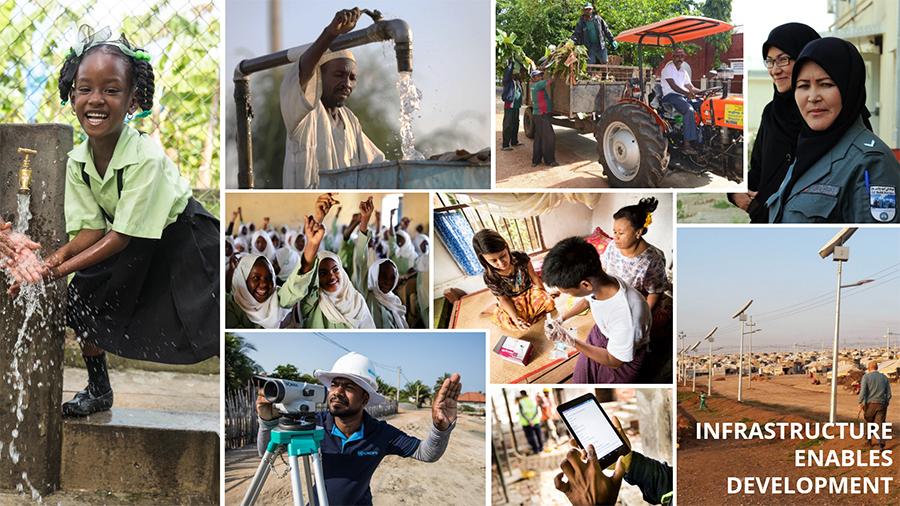New collaboration for climate-resilient infrastructure in Ghana

A significant new project 'Enhancing the resilience of national infrastructure systems' launched on 22 July 2020. This is a key step in Ghana's efforts to develop resilient infrastructure that is aligned with national priorities, the Sustainable Development Goals and the Paris Agreement on Climate Change.
The collaboration focuses on improving capacity to plan and manage climate-resilient infrastructure in the West African country, in particular on using nature-based solutions for delivering services and enhancing the resilience of infrastructure systems across transport, water and energy.
The project will run for 12 months from July 2020 and involves close collaboration between Ghana's Ministry of Environment, Science, Technology & Innovation (MESTI), the United Nations Environment Programme, UNOPS, Environmental Change Institute, University of Oxford, and the Global Centre on Adaptation.
The analysis will highlight opportunities for a pipeline of climate-resilient infrastructure investments and to provide confidence to external investors, including the development banks and those from the private sector, in providing finance to fund such activities.
Oxford University's Environmental Change Institute (ECI) will play a key role, based on their expertise in modelling infrastructure systems across sectors and in countries around the world, developed through the Infrastructure Transitions Research Consortium (ITRC) led by ECI.
As ECI's Professor Jim Hall explains, "This is the latest step in our co-development of methods to improve decision making for sustainable and resilient infrastructure systems. Ghana is at a crucial point when the right choices about infrastructure development will benefit sustainable development for years to come. I hope that our research will assist decision makers in Ghana to make better choices for a sustainable future."
Lena Fuldauer, an ECI researcher focusing on climate-resilient infrastructure networks, launched the analysis on the impact of climate change on the built and natural environment in Ghana. Together with all partners, ECI researchers will play a vital role in developing tools for climate vulnerability analysis and adaptation prioritisation options.
New collaboration for climate-resilient infrastructure in Ghana
Launched in July 2020, 'Enhancing the resilience of national infrastructure systems' is a key step in Ghana's efforts to develop resilient infrastructure that is aligned with national priorities, the Sustainable Development Goals and the Paris Agreement on Climate Change. Partners include Ghana's Ministry of Environment, Science, Technology and Innovation (MESTI), the United Nations Environment Programme, UNOPS, the Global Centre on Adaptation and the ITRC team at ECI, led by Jim Hall.




